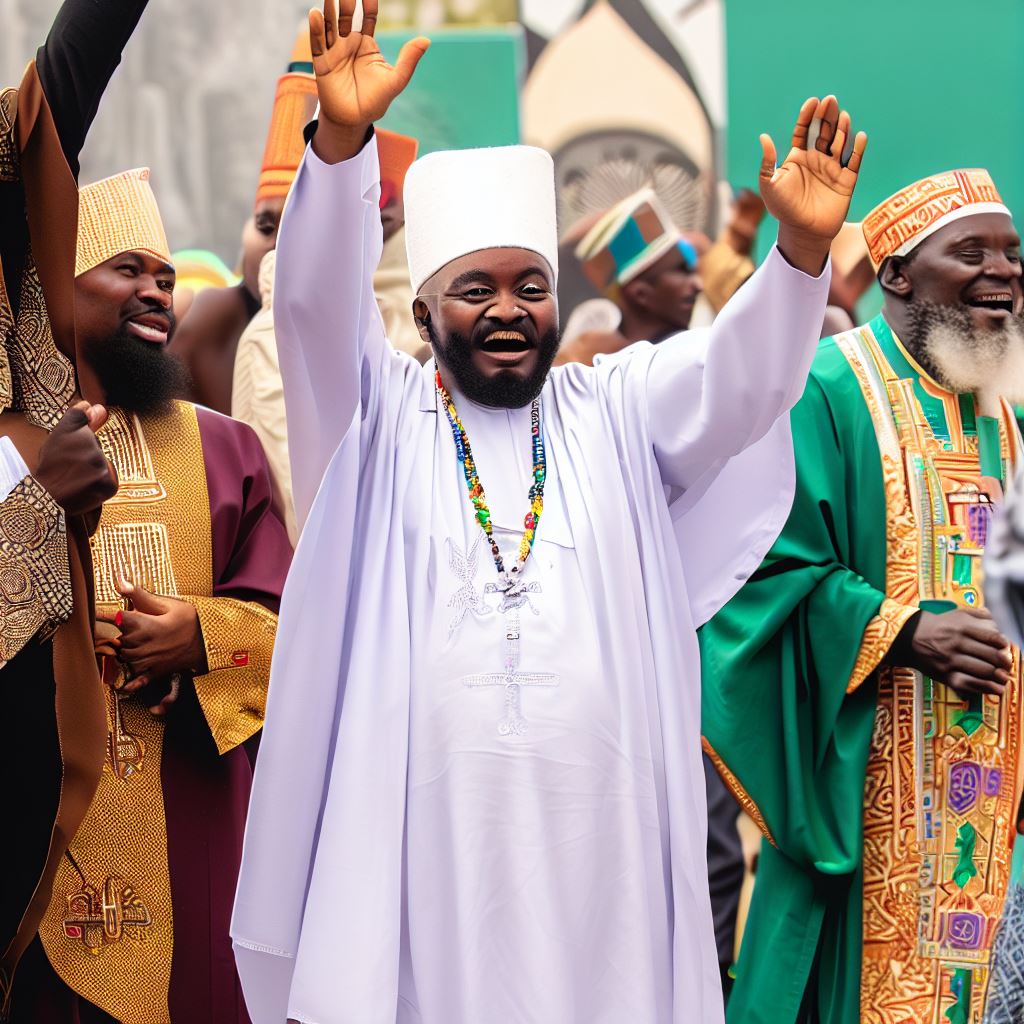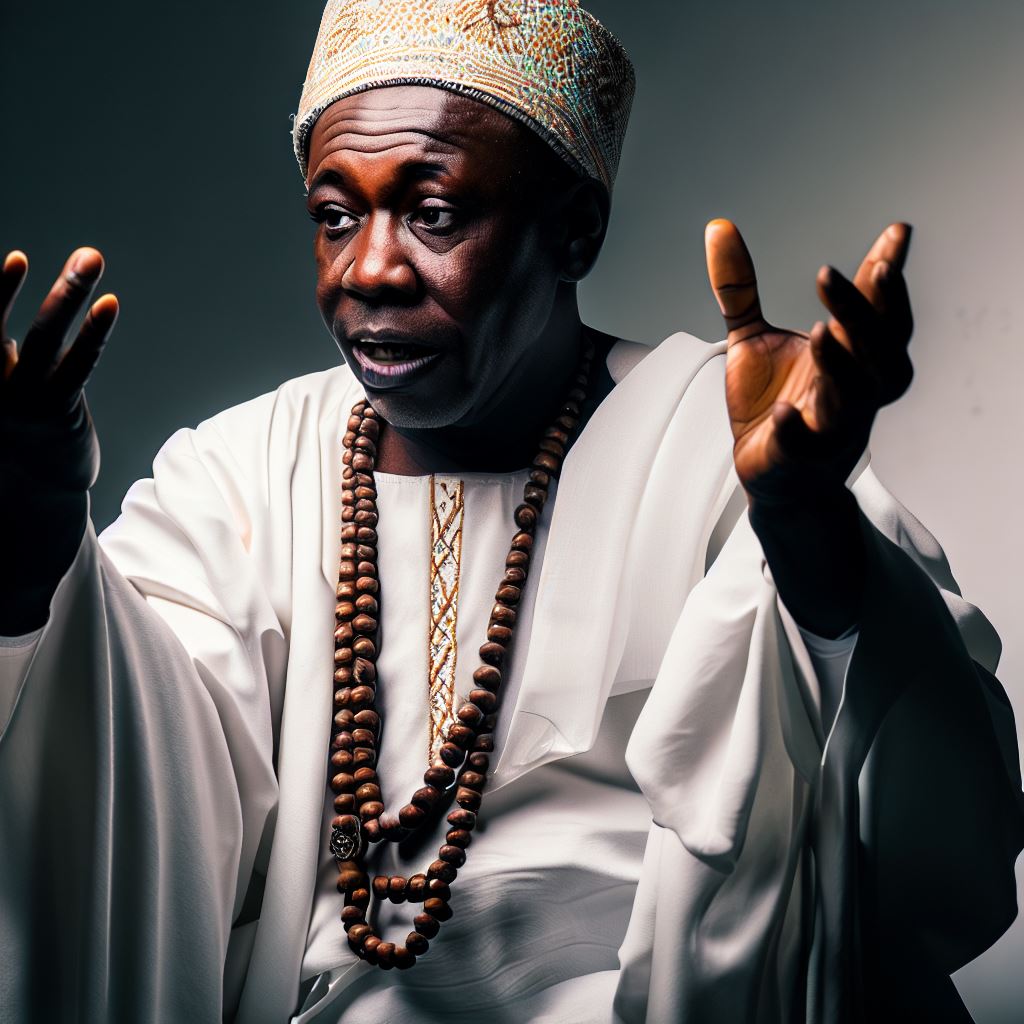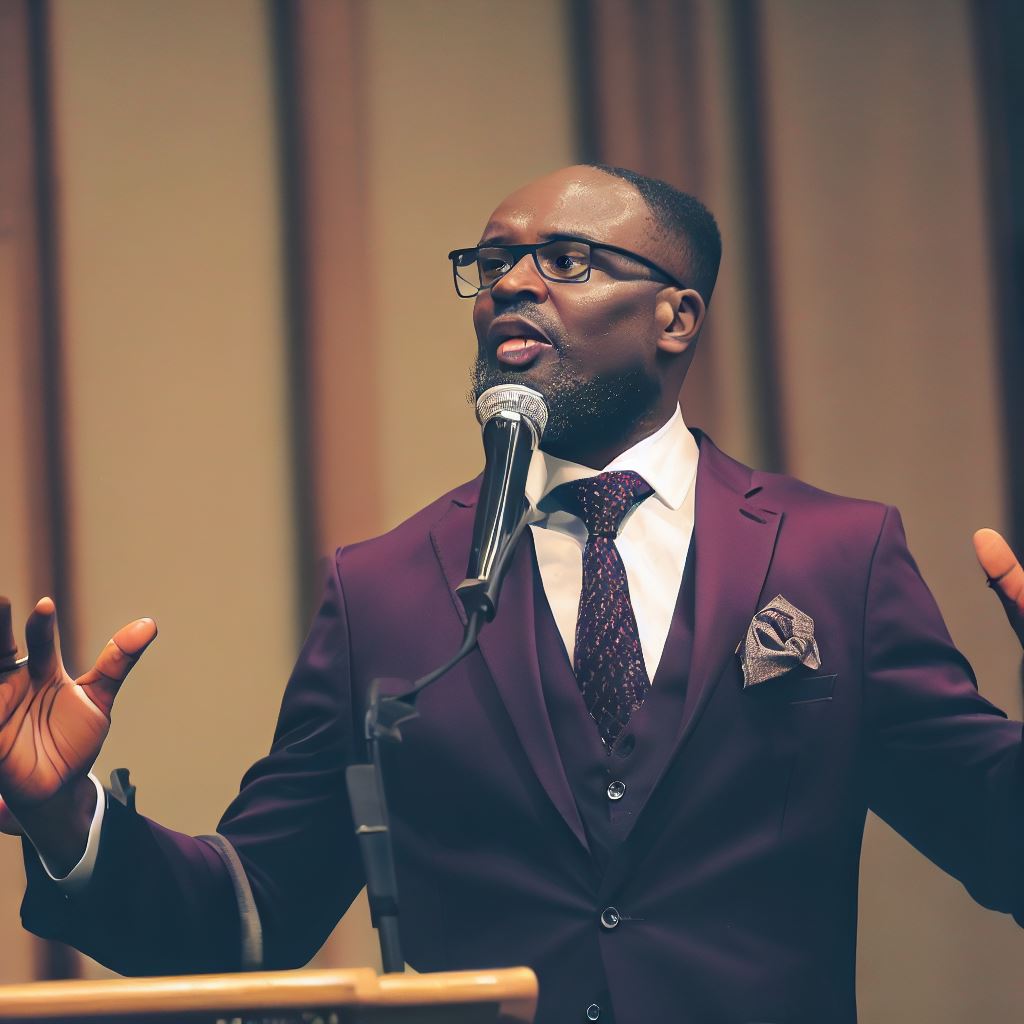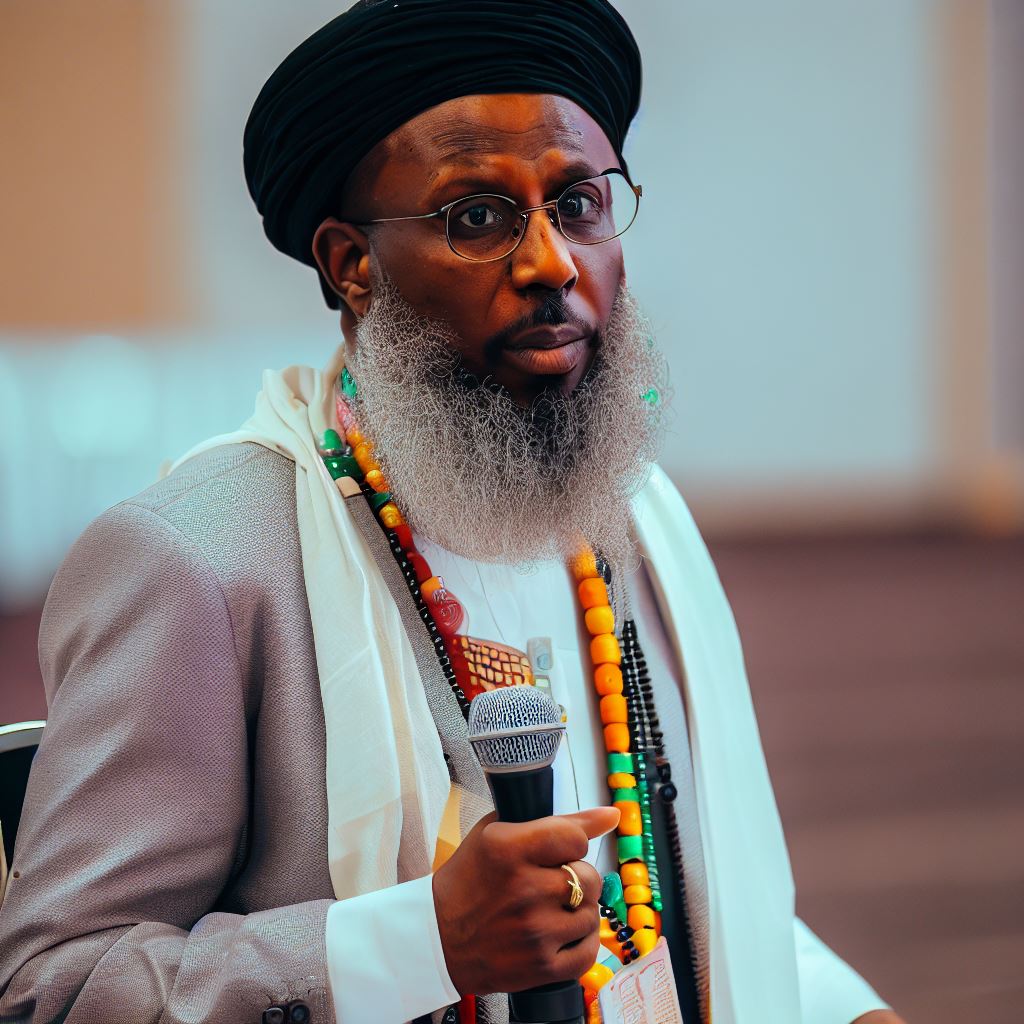Introduction
Imagine a country where religious leaders actively contribute to the improvement of healthcare. In Nigeria, the clergy holds immense influence and plays a pivotal role in society.
Nigeria’s healthcare system faces numerous challenges, including inadequate infrastructure and limited access to quality care.
Exploring the contributions and roles of Nigerian clergy in improving health care This blog post will delve into the vital contributions and roles of Nigerian clergy in the advancement of healthcare.
Hook/Attention Grabber
Did you know that Nigerian clergy play a significant role in improving health care in Nigeria? Despite the country’s many challenges, clergy members are making a difference in the lives of millions of Nigerians.
Background information about Nigerian clergy and their significant influence
Nigerian clergy are highly respected and influential members of society. They play a leading role in providing spiritual guidance and support to their communities.
However, their influence goes beyond the spiritual realm. Clergy members are also active in promoting social and economic development, including in the area of health care.
Brief overview of the Nigerian health care system and its challenges
Nigeria’s health care system is underfunded and overstretched. Millions of Nigerians lack access to basic health care services.
This is due to a number of factors, including poverty, inadequate infrastructure, and a shortage of qualified health care personnel.
Thesis statement: Exploring the contributions and roles of Nigerian clergy in improving health care
Despite the challenges, Nigerian clergy are making a significant contribution to improving health care in the country. This blog post will explore the different ways in which clergy members are working to improve the health and well-being of Nigerians.
Historical Perspective: The Origins of Nigerian Clergy’s Involvement in Health Care
Early religious institutions and their emphasis on holistic well-being
The involvement of Nigerian clergy in health care can be traced back to the early religious institutions in the country.
These institutions, such as traditional religions and Islam, emphasized the importance of holistic well-being.
Missionary influence and the establishment of hospitals and clinics
The arrival of Christian missionaries in Nigeria during the colonial era played a significant role in shaping the involvement of clergy in health care.
Missionaries established hospitals and clinics to provide medical services to the local population.
Development of indigenous healing systems within religious frameworks
Alongside the influence of foreign missionaries, indigenous healing systems also developed within religious frameworks.
Traditional healers, often working in conjunction with clergy, utilized herbs, rituals, and prayers in their healing practices.
Read: Clergy and Politics: An In-depth Look at Nigeria’s Scenario
Contributions of Nigerian Clergy in Health Care
The Nigerian clergy plays an instrumental role in improving the country’s health care system and addressing the various health challenges faced by its population.
Through their contributions and active involvement, they have helped to bridge the gaps in physical infrastructure, promote health education and awareness, and provide financial support to those in need.
Provision of Physical Infrastructure
1. Church-owned hospitals and clinics
Nigerian clergy have invested in the establishment and management of hospitals and clinics under the auspices of religious organizations.
These institutions provide much-needed healthcare services to the communities they serve.
2. Construction of medical facilities in rural areas
Recognizing the disparity in access to healthcare between urban and rural areas, the clergy has undertaken the construction of medical facilities in remote regions.
These facilities bring healthcare closer to people who would otherwise have limited or no access to medical services.
3. Investment in modern medical equipment and technologies
Nigerian clergy understand the importance of equipping healthcare facilities with modern medical equipment and technologies.
They make significant investments to ensure that healthcare providers have the necessary tools to deliver quality care.
Supporting Health Education and Awareness Campaigns
1. Integration of health messages into sermons and religious gatherings
The clergy effectively utilizes religious platforms to disseminate health messages.
They incorporate health education into their sermons and religious gatherings, reaching a wide audience and raising awareness about various health issues.
2. Promoting preventive care and healthy lifestyle choices
Nigerian clergy emphasize the importance of preventive care and healthy lifestyle choices.
They actively promote practices such as regular check-ups, vaccinations, and proper nutrition as part of their health education initiatives.
2. Collaboration with health professionals to conduct workshops and seminars
The clergy collaborates with health professionals to organize workshops and seminars on health-related topics.
These events provide valuable information and resources for individuals and communities, empowering them to make informed decisions about their health.
Financial Contributions
1. Fundraising efforts for medical missions and health care projects
The Nigerian clergy demonstrates their commitment to improving health care by organizing fundraising efforts for medical missions and health care projects.
These funds help support medical teams and the implementation of various health care initiatives.
2. Offering financial assistance to patients with medical expenses
Recognizing the financial burden that medical expenses can impose on individuals and families, the clergy offers financial assistance to patients in need.
This support alleviates the financial strain on vulnerable populations, enabling them to access necessary medical care.
3. Establishing health care funds for vulnerable populations
Nigerian clergy establishes health care funds specifically targeted towards vulnerable populations.
These funds aim to provide financial support for healthcare services and ensure that even the most marginalized individuals can receive the medical care they need.
In essence, the Nigerian clergy’s contributions in health care are diverse and far-reaching.
They invest in physical infrastructure, integrate health education into their religious teachings, and provide financial support for medical missions and vulnerable populations.
Through their active involvement, they play a vital role in improving health care access, promoting public health awareness, and uplifting the overall well-being of the Nigerian population.
Read: Nigeria’s Clergy in the Digital Age: An Exploration
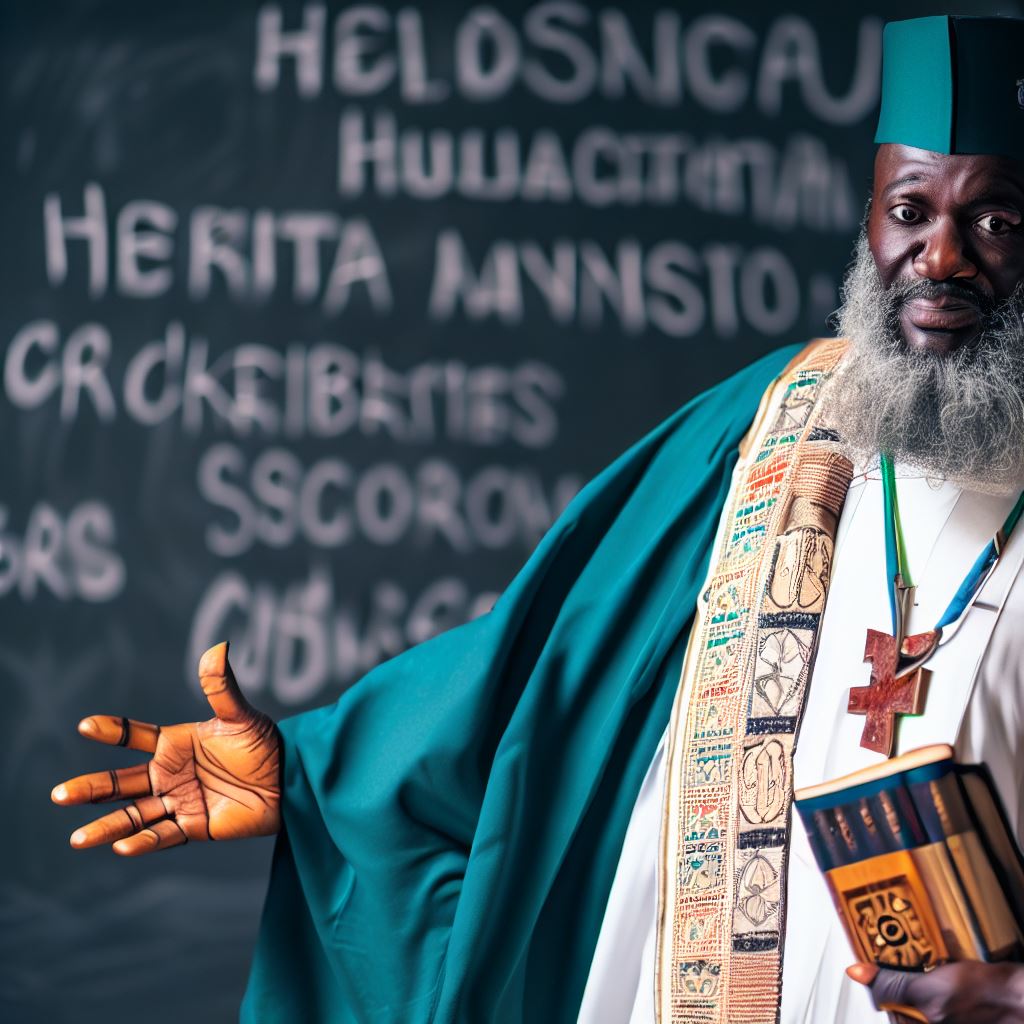
Roles of Nigerian Clergy in Health Care
In Nigeria, the clergy plays a crucial role in the healthcare sector, supporting patients with emotional and spiritual care.
They act as pillars of strength, offering guidance and motivation during challenging times. The pastors, priests, and other religious leaders provide immense comfort to patients and their families.
Pastoral Care for Patients
Patients often face emotional distress while dealing with their illness. The clergy help alleviate this burden by providing emotional and spiritual support.
They offer a listening ear, empathy, and words of encouragement to uplift the spirits of patients. Through their presence and prayers, they create an atmosphere of hope and healing.
The clergy offer counseling sessions to patients, addressing their psychological and emotional needs.
They provide a safe space for patients to share their fears and concerns. These counseling sessions help individuals cope with their illness and build resilience.
Additionally, the clergy actively engage in praying for the healing of the sick. They conduct healing services and prayers, invoking divine intervention for physical and emotional well-being.
These prayers provide solace, comfort, and a sense of connection with a higher power.
In cases where patients are terminally ill, the clergy play a crucial role in providing comfort to both patients and their families.
They offer support during the end-of-life journey, guiding the patients and their loved ones through this challenging phase.
The clergy provide spiritual guidance, helping individuals find peace and acceptance during this time of transition.
Advocacy for Health Care Accessibility and Equity
Aside from pastoral care, the Nigerian clergy also advocate for better healthcare accessibility and equity. They address disparities in healthcare access, particularly in rural and underserved areas.
By raising their voices, they draw attention to the lack of medical facilities and resources in these areas, urging for necessary interventions.
Furthermore, the clergy engage in lobbying activities, advocating for government policies that prioritize healthcare.
They collaborate with policymakers to create and implement initiatives that improve the quality and availability of healthcare services.
By influencing policy decisions, they contribute to the overall advancement of the healthcare sector in Nigeria.
Collaborations with Medical Professionals
The clergy also collaborate with international organizations to enhance health infrastructure and services.
They work hand in hand with these organizations to bring about positive changes in healthcare delivery.
By leveraging their networks, they facilitate partnerships and projects that aim to improve access to quality healthcare for all Nigerians.
Additionally, the clergy actively collaborate with medical professionals to ensure comprehensive healthcare for individuals.
They establish partnerships with doctors, nurses, and other healthcare professionals, fostering a holistic approach to patient care.
These collaborations allow for a multidisciplinary approach, resulting in improved patient outcomes.
Moreover, the clergy coordinate medical missions and volunteer initiatives, bringing healthcare services to underserved communities.
These initiatives often involve a team of medical professionals who provide medical consultations, screenings, and treatments.
The clergy act as facilitators, connecting medical professionals to communities in need.
In fact, the Nigerian clergy plays various roles in the healthcare sector, contributing significantly to patient care and advocating for improved healthcare accessibility and equity.
Through their pastoral care, advocacy, and collaborations with medical professionals, they positively impact the overall healthcare landscape in Nigeria.
Read: The Growth of Interfaith Dialogue in Nigeria’s Clergy
Challenges and Potential Solutions
The Nigerian clergy plays a crucial role in the healthcare sector, but they also face numerous challenges. This section explores some of these challenges and proposes potential solutions to overcome them.
Limited Resources and Funding
One major challenge faced by the Nigerian clergy is limited resources and funding for healthcare projects. To overcome financial constraints, creative strategies should be employed.
This includes exploring alternative sources of funding like seeking international partnerships and grants.
Additionally, efficient utilization of available resources is essential to ensure maximum impact in providing healthcare services.
Cultural and Religious Beliefs
Another challenge is the influence of cultural and religious beliefs that hinder access to modern medicine. Misconceptions and myths should be addressed through education and awareness campaigns.
Promoting a harmonious blend of traditional healing methods and evidence-based practices can bridge the gap between cultural beliefs and the benefits of modern medicine.
Encouraging dialogue and understanding between religious leaders and health professionals can also help dispel misconceptions.
Strengthening Collaboration between Religious and Government Institutions
Collaboration between religious and government institutions is vital for effective healthcare delivery.
Engaging religious leaders in health policy-making processes ensures a holistic approach to decision-making.
Ensuring effective communication channels between the clergy and health authorities facilitates efficient coordination and resource allocation.
Exploring joint initiatives between religious and government institutions can harness the strengths of both sectors and effectively tackle public health challenges.
In general, while the Nigerian clergy contributes significantly to healthcare, they face challenges such as limited resources and funding, cultural and religious beliefs, and the need for collaboration with government institutions.
By implementing potential solutions like seeking international partnerships and grants, addressing misconceptions, promoting dialogue, and strengthening collaboration, the clergy can overcome these challenges and continue to play a pivotal role in improving healthcare in Nigeria.
Read: Challenges Faced by Nigeria’s Clergy: An Insightful Look
Discover More: Spiritual Growth and Development: A Pastor’s Guide in Nigeria
Conclusion
A recap of the contributions and roles of Nigerian clergy in health care is necessary to highlight their importance.
Their ongoing involvement and support are vital for the betterment of health care in Nigeria. Collaboration between clergy, health professionals, and the government should continue for further improvement.
Nigerian clergy are playing a vital role in improving health care in the country. They are:
- Providing education and awareness about health issues
- Offering support and counseling to people living with chronic illnesses
- Mobilizing communities to take action on health issues
- Advocating for better health care policies and programs
- Providing direct health care services through clinics and hospitals
The contributions of Nigerian clergy to health care are significant and far-reaching. They are making a real difference in the lives of millions of Nigerians.
Publish Your Professional Profile, Business or Brand
Showcase your expertise, gain trust, and boost visibility instantly on Professions.ng.
Publish Now
